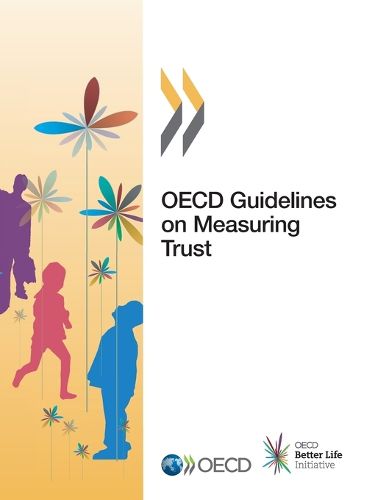Readings Newsletter
Become a Readings Member to make your shopping experience even easier.
Sign in or sign up for free!
You’re not far away from qualifying for FREE standard shipping within Australia
You’ve qualified for FREE standard shipping within Australia
The cart is loading…






This title is printed to order. This book may have been self-published. If so, we cannot guarantee the quality of the content. In the main most books will have gone through the editing process however some may not. We therefore suggest that you be aware of this before ordering this book. If in doubt check either the author or publisher’s details as we are unable to accept any returns unless they are faulty. Please contact us if you have any questions.
Trust, both interpersonal trust, and trust in institutions, is a key ingredient of growth, societal well-being and governance. As a first step to improving existing measures of trust, the OECD Guidelines on Measuring Trust provide international recommendations on collecting, publishing, and analysing trust data to encourage their use by National Statistical Offices (NSOs). The Guidelines also outline why measures of trust are relevant for monitoring and policy making, and why NSOs have a critical role in enhancing the usefulness of existing trust measures. Besides looking at the statistical quality of trust measures, best approaches for measuring trust in a reliable and consistent way and guidance for reporting, interpretation and analysis are provided. A number of prototype survey modules that national and international agencies can use in their household surveys are included. These Guidelines have been produced as part of the OECD Better Life Initiative, a pioneering project launched in 2011, with the objective to measure society’s progress across eleven domains of well-being. They complement a series of similar measurement guidelines on subjective well-being, micro statistics on household wealth, integrated analysis of the distribution on household income, consumption and wealth, as well as the quality of the working environment.
$9.00 standard shipping within Australia
FREE standard shipping within Australia for orders over $100.00
Express & International shipping calculated at checkout
Stock availability can be subject to change without notice. We recommend calling the shop or contacting our online team to check availability of low stock items. Please see our Shopping Online page for more details.
This title is printed to order. This book may have been self-published. If so, we cannot guarantee the quality of the content. In the main most books will have gone through the editing process however some may not. We therefore suggest that you be aware of this before ordering this book. If in doubt check either the author or publisher’s details as we are unable to accept any returns unless they are faulty. Please contact us if you have any questions.
Trust, both interpersonal trust, and trust in institutions, is a key ingredient of growth, societal well-being and governance. As a first step to improving existing measures of trust, the OECD Guidelines on Measuring Trust provide international recommendations on collecting, publishing, and analysing trust data to encourage their use by National Statistical Offices (NSOs). The Guidelines also outline why measures of trust are relevant for monitoring and policy making, and why NSOs have a critical role in enhancing the usefulness of existing trust measures. Besides looking at the statistical quality of trust measures, best approaches for measuring trust in a reliable and consistent way and guidance for reporting, interpretation and analysis are provided. A number of prototype survey modules that national and international agencies can use in their household surveys are included. These Guidelines have been produced as part of the OECD Better Life Initiative, a pioneering project launched in 2011, with the objective to measure society’s progress across eleven domains of well-being. They complement a series of similar measurement guidelines on subjective well-being, micro statistics on household wealth, integrated analysis of the distribution on household income, consumption and wealth, as well as the quality of the working environment.